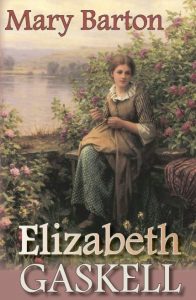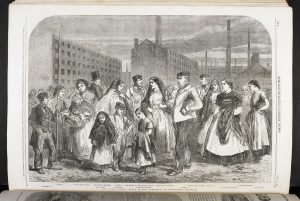Mary Barton – Elizabeth Gaskell – 1848

Posted by guillermo maynez on 26/3/2013, 14:29:41
Well, I did finish “Mary Barton” and I enjoyed it, though that may respond to my liking for Victorian fiction, a kind of “feel at home” sentiment about the period, language, and situations. I can fully understand and share criticism made here about the novel: its predictability, sentimentality, caricaturesque portrait of social conflict, etc. But I think Gaskell’s depiction of the conflict between workers and masters is much more nuanced and complex than it may appear at first thought. She seems to remarks the lack of communication between both parties as the cause of the conflict, and not so much on any one’s bad faith. Textile businessmen of the period faced a tough challenge from competitors, forcing them to accept bad terms of trade which would, of course, be detrimental to the workers’ interests. But instead of explaining the situation and asking for the solidarity of the workers, they entrench in a proud (and finally arrogant) attitude: they demand absolute acceptance of the situation on the part of the workers, just because they are masters, and are unwilling to listen to the plight undergone by their employees. Both parties’ reluctance to listen and compromise results in a tragic death, and in the tragic criminalization of an otherwise good man. A love affair is introduced to add drama to the situation, but the conflict is far from one-sided or simple.
~
Posted by Steven on 27/3/2013, 18:19:27, in reply to “Mary Barton”
I think Mary Barton is fascinating, not so much for its fictional aspects, but for what it says about the times and the dynamics of the reform movement.
One of the first things I noticed is that Gaskell is not at all free of the thinking that people are predisposed to certain social classes because of their physical and mental attributes. “The only thing to strike a passer-by was an acuteness and intelligence of countenance which has often been noticed in a manufacturing population.” Contrasting with: “She had the fresh beauty of the agricultural districts; and somewhat of the deficiency of sense in her countenance which is likewise characteristic of the rural inhabitants in comparison with natives of the manufacturing towns.”
And it’s pretty clear that Gaskell wants nothing to do with revolutionary notions of social equality. She’s sympathetic to the feelings of the revolutionary, but not his aims. John Barton’s radical ideas brought only misery and death to everyone.
The use of opium is interesting. Not only John Barton’s addiction, but this: “Many a penny that would have gone little way enough in oatmeal or potatoes, bought opium to still the hungry little ones, and make them forget their uneasiness in heavy troubled sleep. It was mother’s mercy.” (I can personally attest to opium’s efficacy as an appetite suppressant: I’ve been on pain killers the last twelve days and have lost ten pounds.)
And one more thing: Gaskell talks constantly about religion, and yet there isn’t a church or a clergyman to be found in the entire novel as far as I can tell. Where is the Church while its parishioners are starving to death? Enjoying the masters’ warm drawing rooms, no doubt. Gaskell was the wife of a Unitarian minister. I know nothing about that religion, but obviously she didn’t care to put the Church of England in a positive light. Instead she shows people consulting their own Bibles directly for guidance as if to demonstrate the superfluity of the established church.
~

‘The cotton famine – group of mill operatives at Manchester’ from the Illustrated London News – See more at: http://www.bl.uk/romantics-and-victorians/articles/an-introduction-to-mary-barton#sthash.uyTXf7n6.dpuf